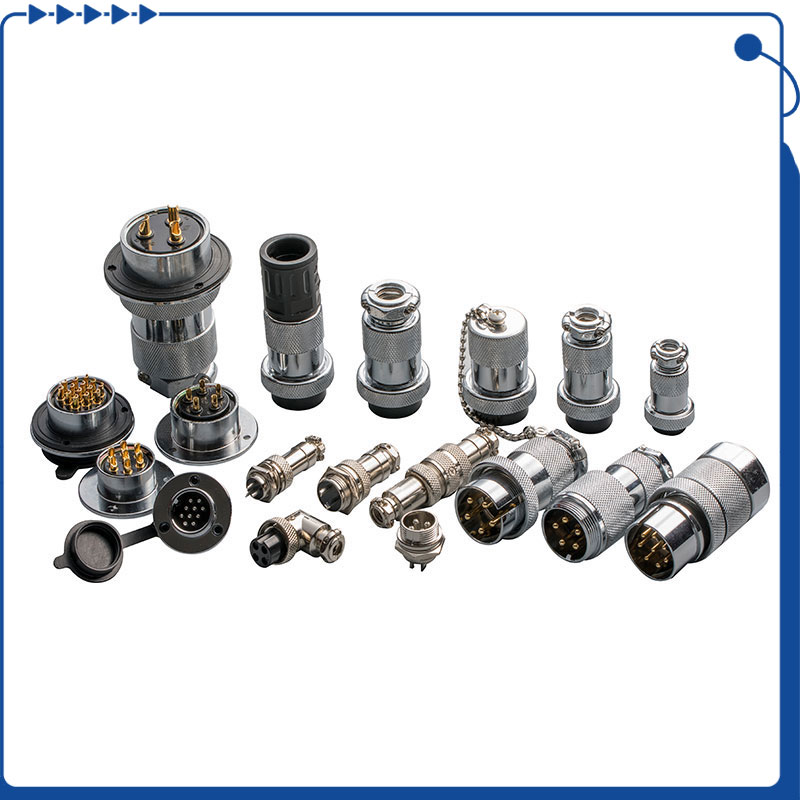What Are Circular Connectors and Why Are They Important?
2024-12-17
If you’ve ever worked with electronic devices, machinery, or even complex industrial systems, you’ve likely come across circular connectors. But what exactly are they, and why are they so important? Circular connectors play a crucial role in a wide range of applications, from telecommunications to aerospace, automotive to medical equipment. Understanding their structure, uses, and benefits can help you appreciate their significance in modern technology.
What Are Circular Connectors?
Circular connectors are a type of electrical connector with a round, cylindrical design, typically consisting of a plug and a receptacle (or socket). The main feature of these connectors is their ability to provide secure, reliable electrical connections while being resistant to harsh environments, vibrations, and physical stress. Circular connectors are available in various sizes, pin configurations, and materials to suit different needs and applications.
The circular design of these connectors allows for easy alignment during insertion and offers a high degree of reliability and durability. The contacts inside the connector transmit electrical signals, power, or data between two connected devices or systems.
Types of Circular Connectors
Circular connectors are categorized based on factors such as size, function, and environmental tolerance. Here are some of the most common types:
1. Military Circular Connectors: These connectors are designed to meet the rigorous standards required by military and aerospace applications. They are typically built to withstand extreme temperatures, pressure, vibration, and exposure to chemicals. Common standards for military circular connectors include MIL-DTL-38999 and MIL-DTL-5015.
2. Industrial Circular Connectors: Used in heavy-duty machinery, industrial control systems, and automation, these connectors are built to handle high electrical currents and resist wear and tear. They often feature locking mechanisms to prevent accidental disconnections.
3. Audio and Video Circular Connectors: In the world of professional audio and video equipment, circular connectors like the XLR (used in microphones and sound systems) are essential for high-quality signal transmission. These connectors are known for their secure locking system and ability to handle high-frequency signals.
4. Automotive Circular Connectors: Circular connectors are widely used in the automotive industry to ensure reliable connections between different vehicle systems. Whether it’s for sensors, cameras, or power supply systems, automotive circular connectors must be durable and able to withstand high temperatures, moisture, and vibration.
5. Data Circular Connectors: For transmitting data between devices, circular connectors like the M12 connectors are used in industrial networking, sensors, and automation systems. These connectors are particularly designed for environments where a high degree of resistance to dust, water, and vibration is needed.
Why Are Circular Connectors Important?
Circular connectors offer several key advantages that make them essential in various industries:
1. Reliability: The circular design ensures that connectors can be easily and securely mated, reducing the likelihood of accidental disconnections. Many circular connectors also feature locking mechanisms that provide additional security, especially in critical applications like military and aerospace.
2. Durability: Circular connectors are designed to withstand harsh environmental conditions, including extreme temperatures, moisture, and vibrations. This makes them ideal for use in industries where equipment needs to perform consistently in demanding environments.
3. Versatility: Circular connectors come in many configurations, including multi-pin versions, which allow them to carry multiple signals or power sources in a single connector. This versatility makes them suitable for a wide range of applications, from industrial equipment to medical devices.
4. Ease of Use: The round, symmetrical shape of circular connectors makes them easy to align and connect, even in tight or hard-to-reach spaces. Many connectors also feature quick-release mechanisms, which enable fast disconnection when needed.
5. Protection: Many circular connectors are designed with environmental sealing capabilities, such as IP (Ingress Protection) ratings. These features prevent dust, dirt, and moisture from entering the connector, ensuring the connection remains stable and reliable in rugged conditions.
Applications of Circular Connectors
The versatility of circular connectors allows them to be used in a wide range of industries and applications. Some of the most common uses include:
- Aerospace and Defense: Circular connectors are widely used in aircraft, satellites, and military equipment due to their ability to withstand extreme conditions like high vibration, temperature variations, and exposure to chemicals.
- Automotive: In cars, trucks, and electric vehicles, circular connectors are essential for connecting sensors, cameras, power systems, and other critical components that ensure vehicle safety and performance.
- Industrial Equipment: Whether in manufacturing, automation, or robotics, circular connectors help facilitate communication and power delivery between machines, sensors, and control systems. Their durability ensures that they can operate efficiently in demanding industrial environments.
- Medical Devices: In the medical field, circular connectors are used in a variety of devices such as diagnostic equipment, surgical tools, and monitoring systems. Their reliability is crucial in life-saving applications where failure is not an option.
- Telecommunications: Circular connectors are essential for communication systems, including fiber-optic networks, satellite communication, and broadcast equipment. They ensure stable, high-quality transmission of data and power over long distances.
Conclusion
Circular connectors are indispensable components in a variety of industries, offering reliability, durability, and versatility that help ensure seamless connections in everything from everyday machinery to high-tech military and aerospace systems. Their ability to handle power, data, and signal transmission, while withstanding harsh environmental conditions, makes them essential for modern technology. Whether you're an engineer designing complex systems or a DIY enthusiast working on a home project, understanding the role of circular connectors can help you choose the right components for your needs and ensure optimal performance.
In a world that relies heavily on connectivity and precision, circular connectors are quietly ensuring that our machines, vehicles, and devices stay connected, powered, and functional.



